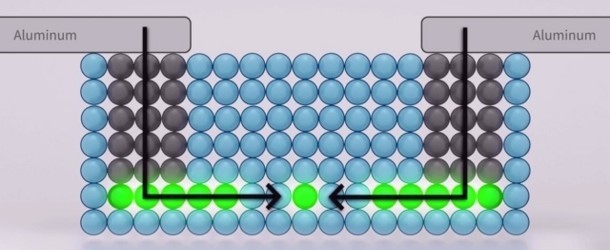NIST & UMaryland Research with Single-Atom Transistors May Enable Quantum Computers With Unparalleled Memory and Processing Power

(SciTechDaily) Researchers at the National Institute of Standards and Technology (NIST) and their colleagues at the University of Maryland have developed a step-by-step recipe to produce the atomic-scale devices. Using these instructions, the NIST-led team has become only the second in the world to construct a single-atom transistor and the first to fabricate a series of single electron transistors with atom-scale control over the devices’ geometry.
The scientists demonstrated that they could precisely adjust the rate at which individual electrons flow through a physical gap or electrical barrier in their transistor — even though classical physics would forbid the electrons from doing so because they lack enough energy. That strictly quantum phenomenon, known as quantum tunneling, only becomes important when gaps are extremely tiny, such as in the miniature transistors. Precise control over quantum tunneling is key because it enables the transistors to become “entangled” or interlinked in a way only possible through quantum mechanics and opens new possibilities for creating quantum bits (qubits) that could be used in quantum computing.



















